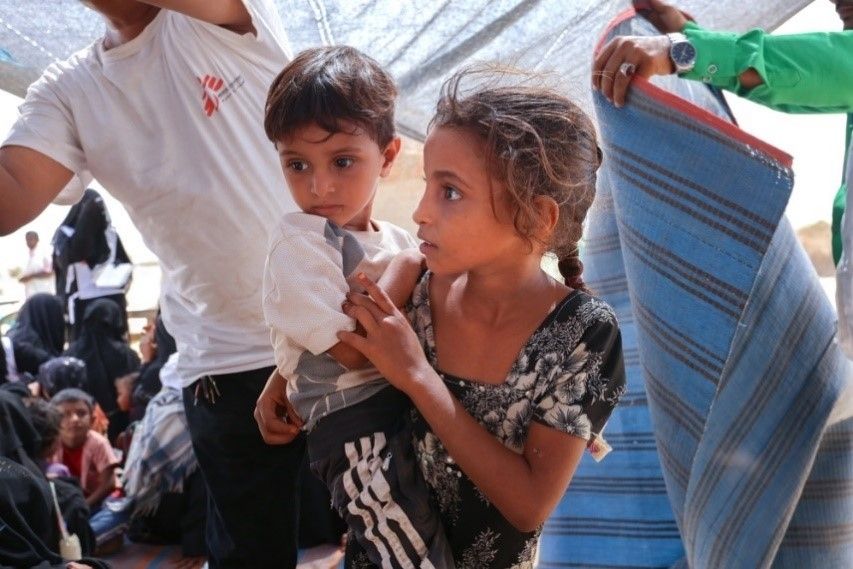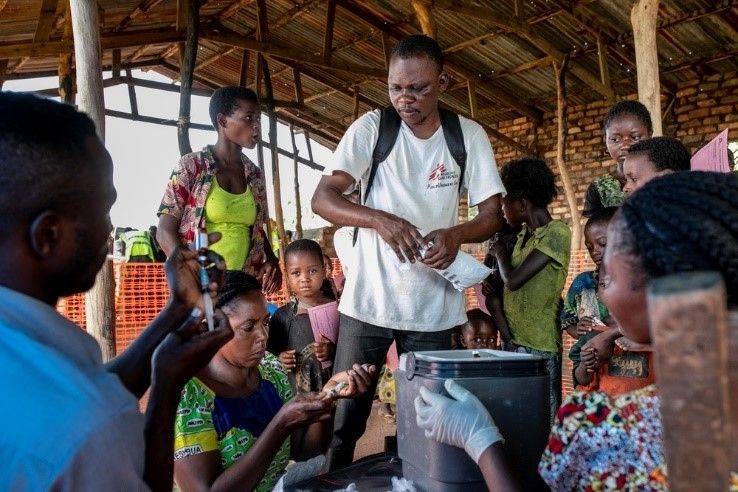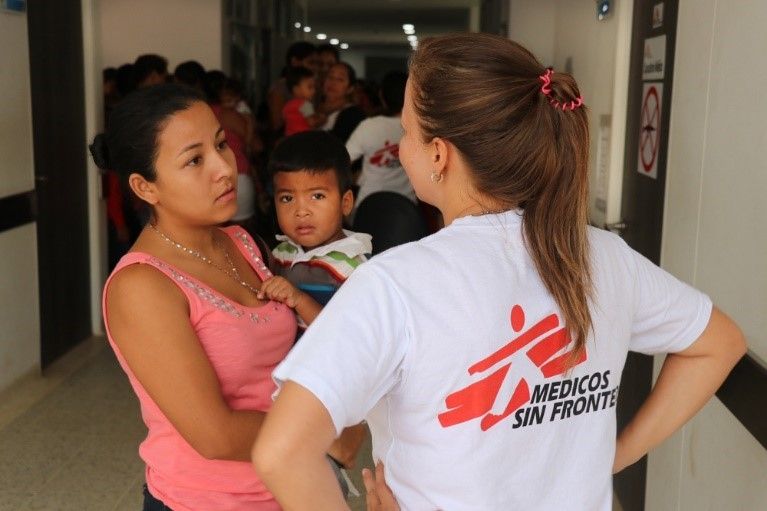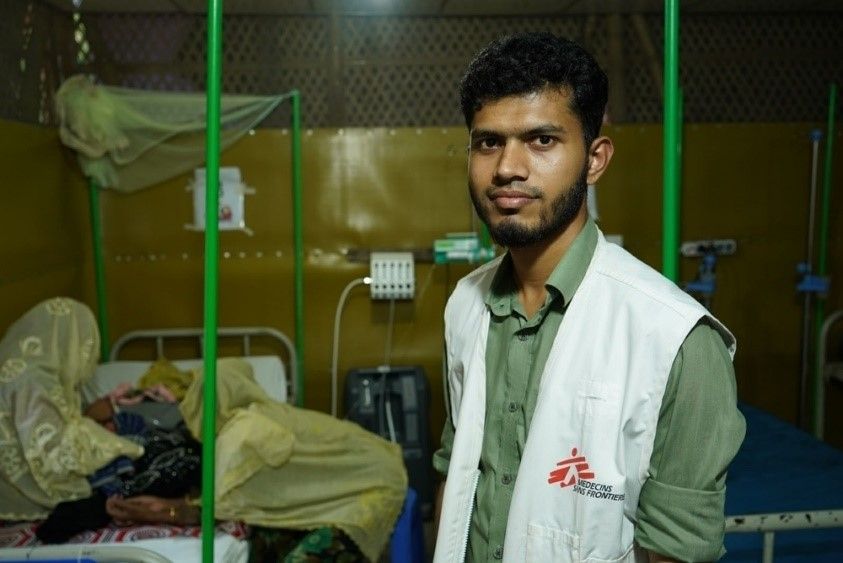
Share
A Unifor Social Justice Fund donation of $200,000 is supporting Doctors Without Borders, or Médecins Sans Frontières (MSF), deliver lifesaving medical treatment in four priority areas.
“MSF is providing front-line care to vulnerable populations in zones of conflict and/or humanitarian crisis,” said Unifor National President Jerry Dias. “The contribution by the Unifor Social Justice Fund will bring direct aid to patients in Yemen, the Democratic Republic of Congo, Bangladesh and Venezuela.”
In Yemen, Unifor’s support is helping MSF reduce deaths due to conflict in the Abs and Haijjah city districts and surrounding areas. Away from the bullets and bombs at the frontlines, MSF staff deal with the secondary implications of the war as they operate mobile clinics to provide consultations, vaccinations, and referral to the MSF-supported hospital in Abs. In addition, the teams provide mental health activities to children and water to refugee camps.
Photo ©Al Hareth Al Magaleh/ MSF
“The Unifor Social Justice Fund's support helps MSF provide life-saving medical care to people in need. Thanks to donations like yours, we can deliver independent medical aid and save lives,” said Flavia Tenenbaum, Fundraising Director, MSF Canada. “We are so grateful for your compassion and commitment to MSF.”
With the Social Justice Fund’s support, MSF is continuing ongoing medical care in the Democratic Republic of Congo (DRC). Medical teams deal with a wide range of health needs in addition to conducting malnutrition, malaria and measles campaigns. In the first five months of 2019, more than 1,500 measles-related deaths were recorded in what is likely to be the deadliest epidemic since the disease made a strong resurgence in the country in 2011. So far this year, MSF has vaccinated 361,079 children and provided medical care for 14,785 patients.
Photo ©Pablo Garrigos/MSF, MSF nurses prepare vaccines against measles at the health center of Lungonzo, Kamwesha health zone (Kasai).
In addition to relentlessly fighting the measles epidemic, MSF personnel are treating patients displaced by violence in the Moyen Plateau and nearby Haut Plateau, with over half of those seen presenting with malaria.
MSF is also tackling malaria in Venezuela, where there has been a significant increase in cases due to the decline in the country’s health system following years of economic and political crisis. The Social Justice Fund donation will support expansion of MSF work encompassing treatment for physical wounds incurred during ongoing social unrest, including emergency surgery, in addition to psychosocial intervention and health promotion.
Photo ©Esteban Montaño/MSF
“Médecins Sans Frontières core values include independence and neutrality and this impartiality allows its teams to deploy quickly to where the medical need is greatest to provide free medical care to patients, regardless of citizenship, religion or political affiliation,” said Mohamad Alsadi, Unifor International Director. “It’s wonderful that the Unifor Social Justice Fund donation is able to support such diverse treatment and preventative measures by MSF around the globe.”
In Bangladesh’s Cox’s Bazar, MSF has stepped up to provide multiple services to Rohingya refugees living in crowded camps with limited access to medical care, including surgery. MSF programs also focus on inadequate provision of secondary healthcare, including comprehensive obstetric and neonatal care, pediatric services, treatment for non-communicable diseases, and chronic illnesses. Furthermore, support from the Social Justice Fund enables MSF to address critical gaps in health services provided to the refugees, including access to sexual and reproductive health services.
Photo © Nitin George/MSF, Gaziur Rahman is nurse supervisor of MSF at the Goyalmara Green Roof hospital in Cox’s Bazar, Bangladesh
For more information visit: https://www.doctorswithoutborders.ca/






